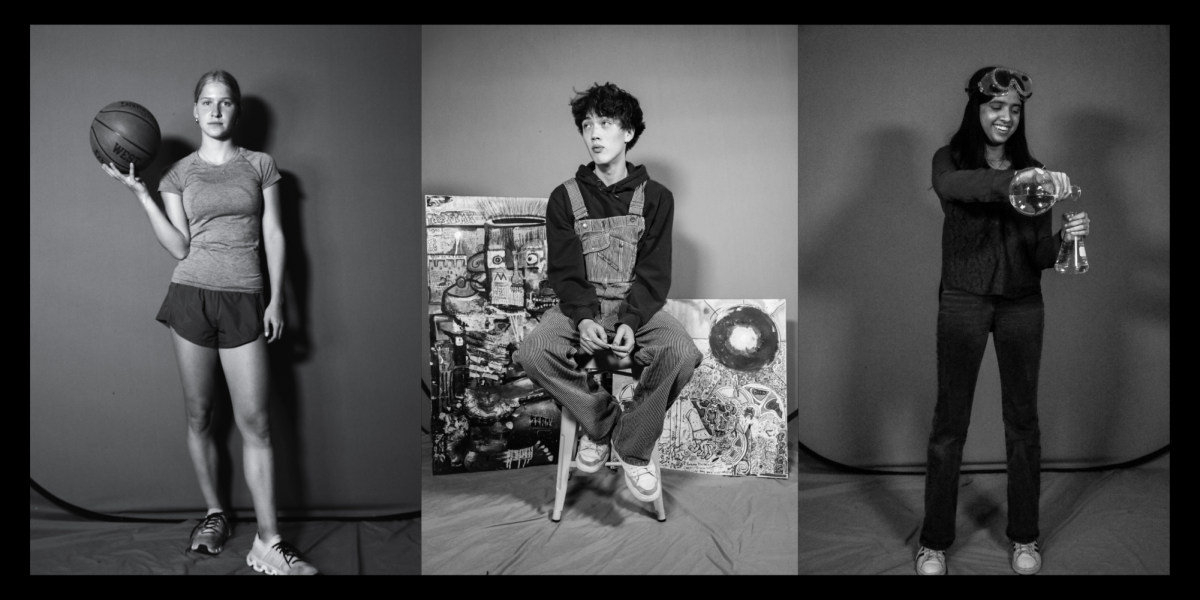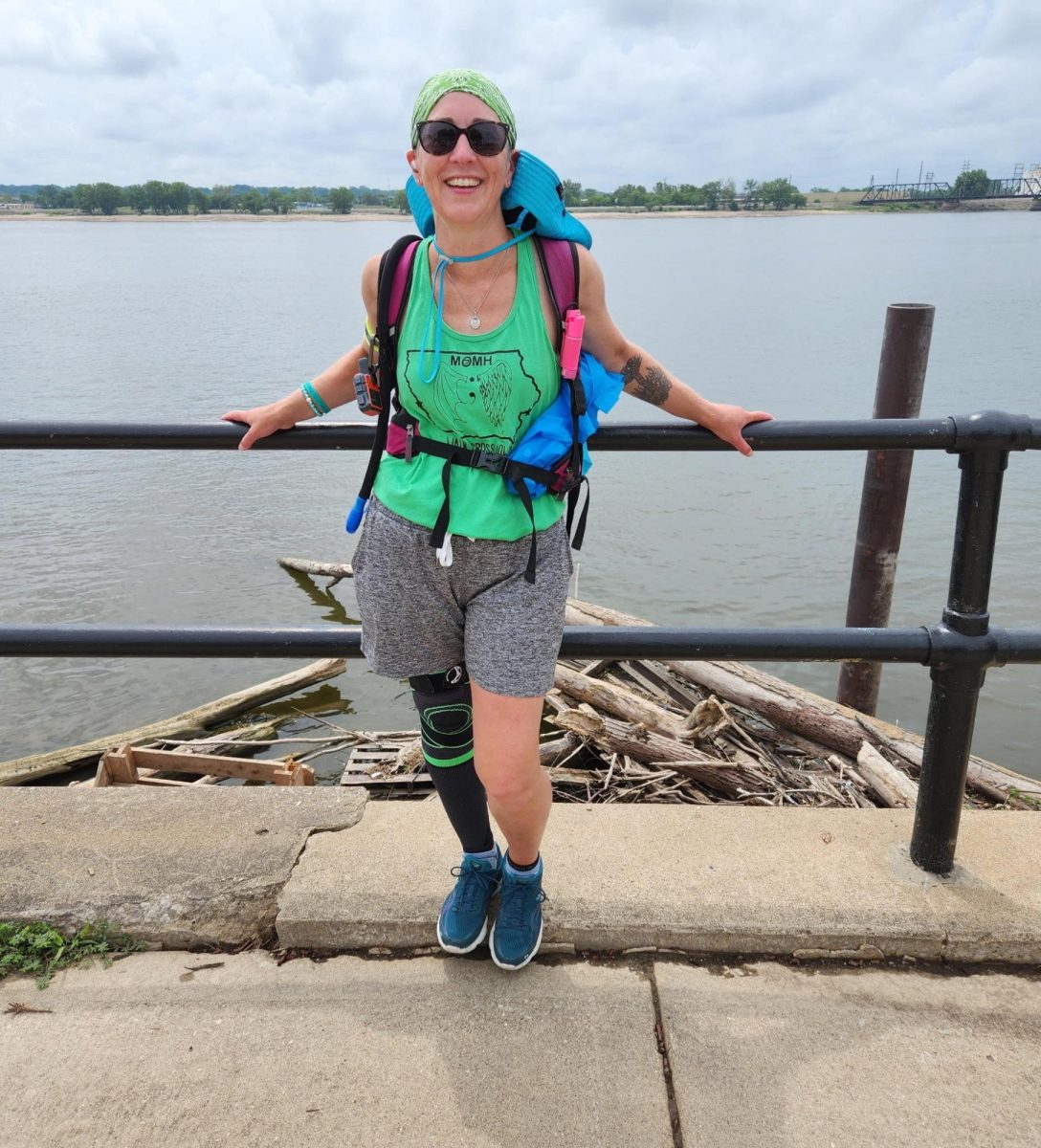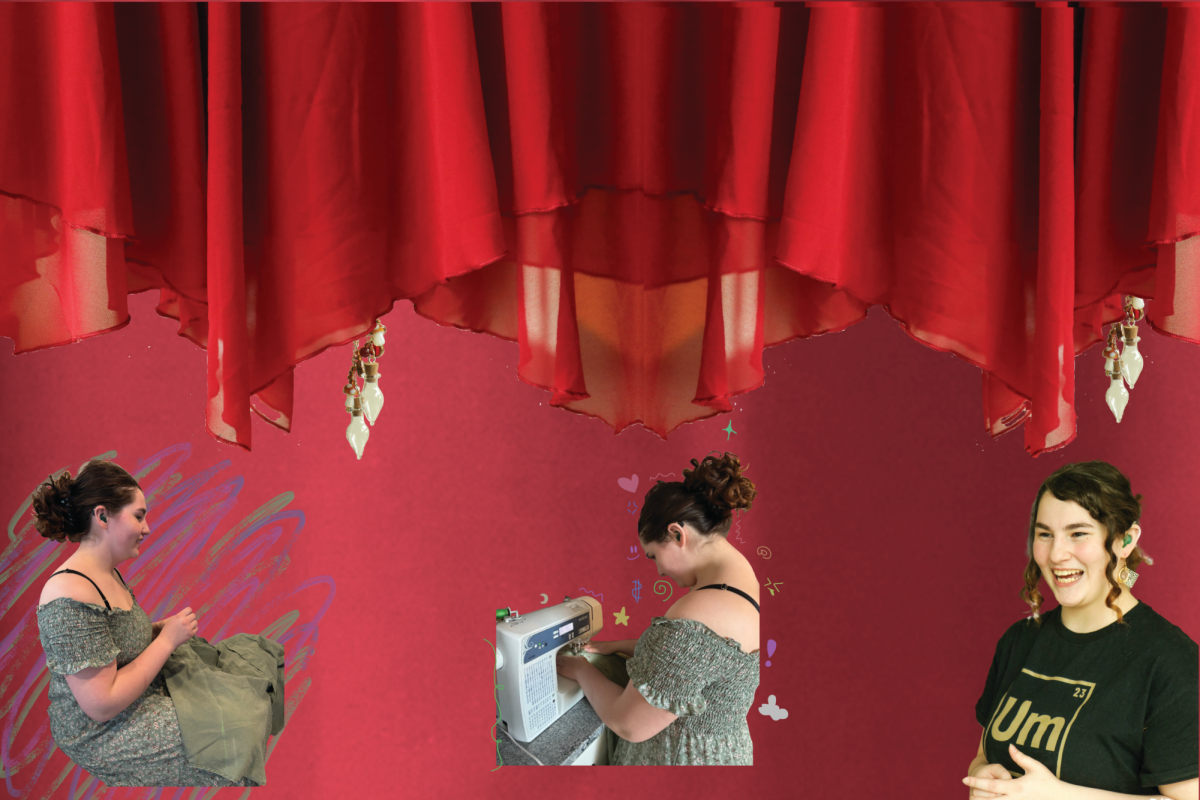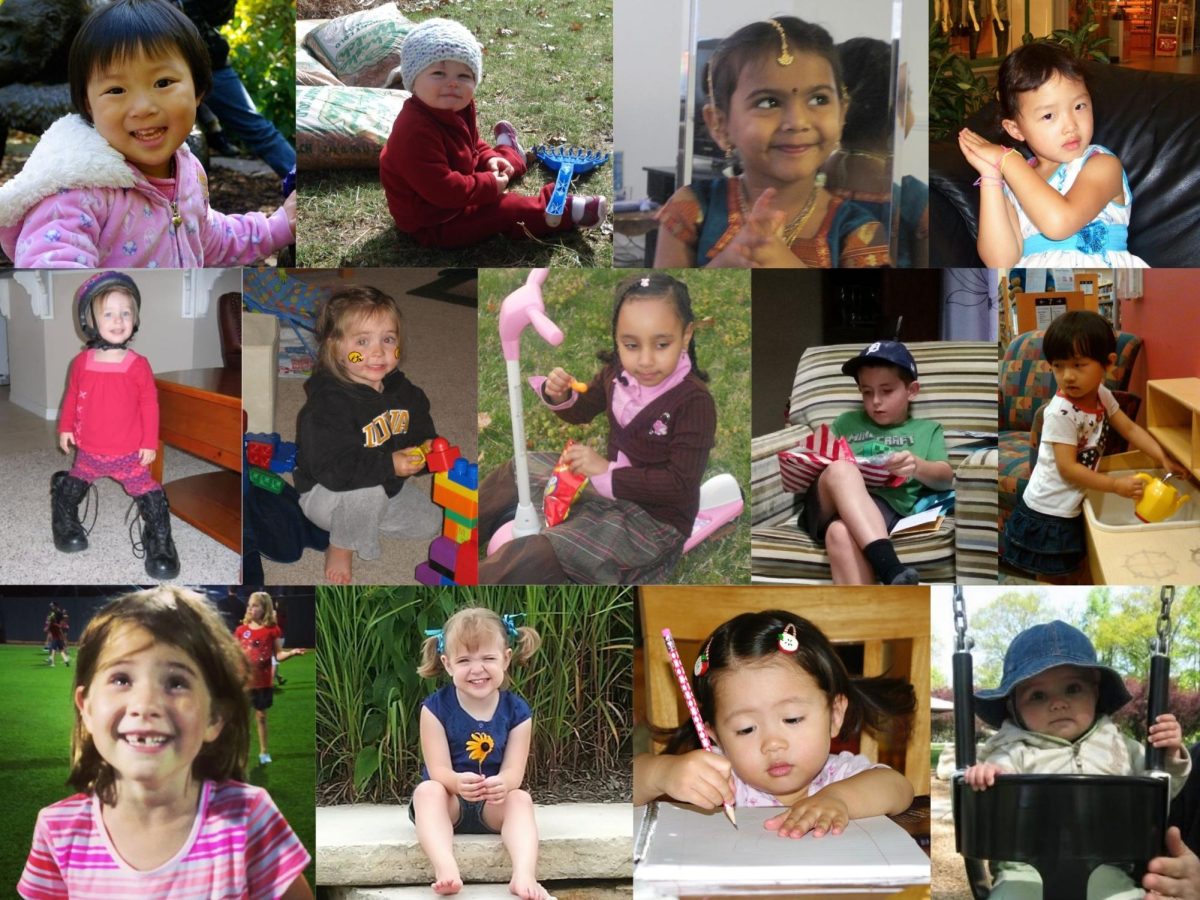On average, it takes 30 minutes to travel 26.9 miles from Iowa City to Cedar Rapids by car. From junior Rana Saba’s house in East Jerusalem, Palestine, to her extended family’s house in the West Bank, it takes nearly four hours to travel the same distance. Marked by checkpoints and separation walls, travel in Palestine is heavily restricted for Palestinians by the Israeli government. “It’s just belittling,” Saba said. “Israeli soldiers with gigantic guns come up to you and ask personal questions, and it’s terrifying.”
Saba remembers sitting in the backseat as a young child while her father and mother were being questioned, unaware that this was abnormal. “I definitely was sheltered,” Saba said, “but I always noticed the restriction of movement for Palestinians.”
While in Palestine, Saba attended a mixed Muslim and Christian elementary school. “There was a separation wall, and there were kids who lived on both sides. They would live five minutes away, but because of checkpoints and the wall, it would take them an hour and a half to get to school,” Saba said.
The family of junior Jinann Abudagga has inhabited the land of Gaza for centuries, according to Abudagga. She recalls stories of traveling to visit her family in Gaza, especially noting a trip in December of 2022.
“A trip from Cairo to the Gaza Strip should take three hours, but it took 48,” Abudagga said. “Before getting on the ferry, our bags were torn apart; it was humiliating… the soldiers would throw my things on the ground at every checkpoint, they confiscated my dad’s phone.”
Once they finally got to Gaza, they were detained for several hours while their passports were inspected. “The Israeli Defense Forces (IDF) make anyone with a passport not from Palestine wait longer because they don’t want foreigners to enter the Gaza Strip… they don’t want them to see what’s going on in there,” Abudagga said.
Violence and discrimination against Palestinians were common things for Saba to see in East Jerusalem as well.
“I’ve been in a shooting before. I was in the car, going to my babysitter’s house, and there were Palestinian protesters. They got shot at by Israeli soldiers. I remember my mom screaming and crying, telling me to duck,” Saba said. The people shot at were protesting the kidnapping and murder of an East Jerusalem boy in 2014. “I found out recently, a couple weeks ago, that he lived in my neighborhood. I didn’t realize he was so close, how my parents were living in fear.”
The day-to-day violence is present in Gaza as well. “I’ve had 36 family members die,” Abudagga said. “My grandparents, their house is no longer intact,” Abudagga said. “My grandparents on my mom’s side had a close call where an undetonated rocket flew into their house.”
Abudagga’s personal story shows a smaller piece of the devastation currently ongoing in the Gaza Strip. Since Oct. 7, 25,105 Gazans have been killed, with more unreported due to rubble, according to the Associated Press. Additionally, 62,105 have been injured.
The difficulty of survival is augmented by the lack of food, electricity, water and shelter. According to a report by Lynn Hastings, UN Resident and Humanitarian Coordinator, 55% of the water supply infrastructure needs repair and rehabilitation. In Gaza, out of the population of 2.3 million, 85% are displaced, and 2.2 million are in crisis because of food insecurity and starvation, according to a report by the World Food Programme.
“There’s people in Gaza living off of protein bars if they have food,” Saba said. “They don’t have homes.”
While Abudagga was growing up in America, her parents made sure she was educated about the struggle happening in Palestine. Attending protests and daily check-ins with family members still in Gaza were hallmarks of her childhood.
“I protested every Friday for a while,” Abudagga said. “It makes me happy to see the protests growing. It used to be five or six people, and now it’s over 200. At the same time, 200 people is not enough, it needs to be the whole world.”
Abudagga now organizes protests at West High, leading the walkout in November and speaking at educational sit-ins, with mainly high school students attending. This pattern also shows across the rest of the country, with young Americans being much more likely to disapprove of the Biden administration’s handling of the war, according to a study by the Pew Research Center.
Saba, who also organized and participated in the walkout, compares the violence to other wars of the past. “If you were ever wondering, like, what you would have done when there were concentration camps, when there was slavery, when there was apartheid in South Africa- if you’re not doing anything now, would you have spoken up then? Probably not.”
Saba expressed her frustration with the mainstream media coverage, commenting on the language used. “According to the media, Palestinians are never killed or murdered, they just die. They don’t cover this… there’s genocide happening right now.”
“Being Palestinian,” Abudagga said, “it means big families, good food and music, culture, but it also means being oppressed and resisting oppression. It means asking for freedom and not getting it.”












